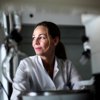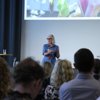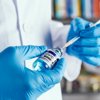Fritextsökning
Artiklar per år
Innehållstyper
-

Partial court victory for entrepreneur who lost his company
Swedish life science entrepreneur Mikael Kubista has won the first round against a law firm that he, along with other co-owners, sued for negligent advice in connection with losing his company, Tataa Biocenter.
-

Joy at Egetis after positive CHMP opinion – ”The single most important milestone”
Stockholm-based Egetis Therapeutics has received a positive CHMP opinion for Emcitate, which could become the first approved treatment for the rare disease MCT8 deficiency."
-

Investigations against AstraZeneca: ”Chinese interests may be behind them”
Why are there several investigations against AstraZeneca employees in China right now? Life Science Sweden continues to seek answers.
-

Lilly´s Nordic manager on Mounjaro launch in Sweden: "Patients deserve respect"
Another blockbuster diabetes and obesity drug has made its way into the Swedish market – with promises of a stable supply and availability for patients. “What we see is a significant unmet need, so we are expecting to have quite a good welcoming
-

Her company is developing a new tablet form obesity drug
Obesity and diabetes are the primary targets of a new tablet treatment under development by Malmö-based Pila Pharma. The company’s ambition is to take on the billion-selling GLP1 analogues. ‘‘Basically, I expect all the beneficial effects that they have, but not the same side effect profile,’’ company founder Dorte X Gram said in an interview with Life Science Sweden.
-

Artificial intelligence in radiology – “Risk prediction is very exciting”
A growing number of solutions based on artificial intelligence are being developed and used in healthcare. According to Sophia Zackrisson, Professor of Radiology at Lund University, radiology is a field that is well suited to the technology.
-

Siemens Healthineers köper del av Novartis
Tyska Siemens Healthineers planerar att köpa Novartis verksamhet AAA Diagnostics, som producerar radioaktiva kemikalier för bland annat cancerdiagnostik. Det rapporterar Financial Times.
-

Thumbs down for lecanemab in the EU – “Very surprised”
The Azheimer's drug lecanemab has received a negative assessment from the European Medicines Agency’s Committee for Medicinal Products for Human Use (CHMP), according to an announcement made by the Agency last week. Bioarctic’s CEO Gunilla Osswald describes the reactions after the announcement as a surprise and disappointment.
-

Innovative start-up helps doctors, scientists and industry balance coagulation risks
For many doctors caring for seriously ill patients, for example, in stroke units and cancer wards, maintaining the life-saving balance between bleeding and thrombosis is an ongoing challenge. In the late 1980s, scientists at Maastricht University in the Netherlands developed an innovative method, the thrombin generation assay (TGA), which provides a complete overview of a physiological process crucial for maintaining normal haemostasis.
-

“Conducting research at universities is becoming more and more like working at a research hotel”
The government wants Swedish research to focus on excellence and innovation, but can the two be combined? Life Science Sweden talks to Anna Falk, a professor at Lund University, about research policy, the constant hunt for funding in academia and what constitutes ‘fine research’.
-

Carl Borrebaeck – professor and serial entrepreneur with a taste for speed
Award-winning cancer researcher, the founder of many listed companies, and constantly in the academic and commercial spotlight for decades. However, Carl Borrebaeck, Professor of Immunotechnology at Lund, is not yet satisfied. “We have a new, potentially super exciting project in the pipeline,” he says.
-

Astra Zeneca's Covid-19 vaccine Vaxzevria is being withdrawn worldwide
AstraZeneca initiates a worldwide withdrawal of its Covid vaccine Vaxzevria. The measure is taken just months after the company admitted the vaccine can cause a rare and dangerous side effect, but AstraZeneca claims that the decision is purely commercial.
-

KI’s freezer fiasco investigated: A chain of failures
A chain of combined technical and organisational shortcomings caused the freezer breakdown at the Karolinska Institute during the Christmas holidays, destroying more than 47,000 samples. This was the conclusion of an internal investigation.
-

The Covid pandemic accelerated the development of cancer vaccine
The Covid pandemic gave a major boost to the vaccine field. The Danish biotech company Expres2ion Biotechnologies, which is developing a vaccine against breast cancer, testifies to this.
-

”We need compatibility“
Penilla Gunther, founder of Fokus Patient and chair of the European Patient Safety Foundation, hopes that the forthcoming life science strategy will focus on efficient and secure management of patient data and equal access to medicines.
-

From Valneva to the CEO position at NorthX – “I saw it as a great opportunity”
A new cell therapy for leukaemia, a vaccine in tablet form against cholera, and a proprietary mRNA line with the potential capacity to supply the entire Nordic region with vaccines during a future pandemic. These are some of the projects underway at NorthX Biologics – under the direction of new CEO Janet Hoogstraate.
-

KI’s new super machine measures brain activity in real-time – “A very expensive hairdo”
Using brand-new, super-advanced equipment, researchers at Karolinska Institutet can now measure brain activity in real-time, with higher resolution than previously possible. “This opens up fantastic opportunities”, says brain researcher Daniel Lundqvist.
-

Failed to read the fine print – lost his life’s work
A celebrated CEO and co-founder of a pioneering lab company one moment – the next, fired, kicked out and written out of the company’s history. This is the story of a Swedish entrepreneur who was going to raise US venture capital to strengthen his company but lost his life’s work instead.
-

Ingrid Lönnstedt: Demystification of the power of a scientific study
”You surely do realize that even the smallest changes in study assumptions may influence the estimated sample size needed. And how is it even possible to guess the magnitude of the treatment effect before performing the study?” writes Ingrid Lönnstedt in a column.
-

”Information security must become part of the Swedish life science strategy”
Sweden needs knowledge security to stand strong in the global competition, writes Björn Ursing in an opinion article.
-

Redsense grundare har avlidit
Patrik Byhmer, grundare av Redsense Medical och aktiv i flera andra medicinteknikbolag, har avlidit.